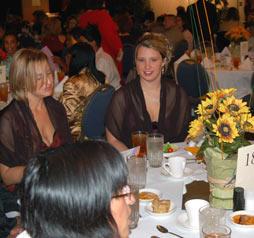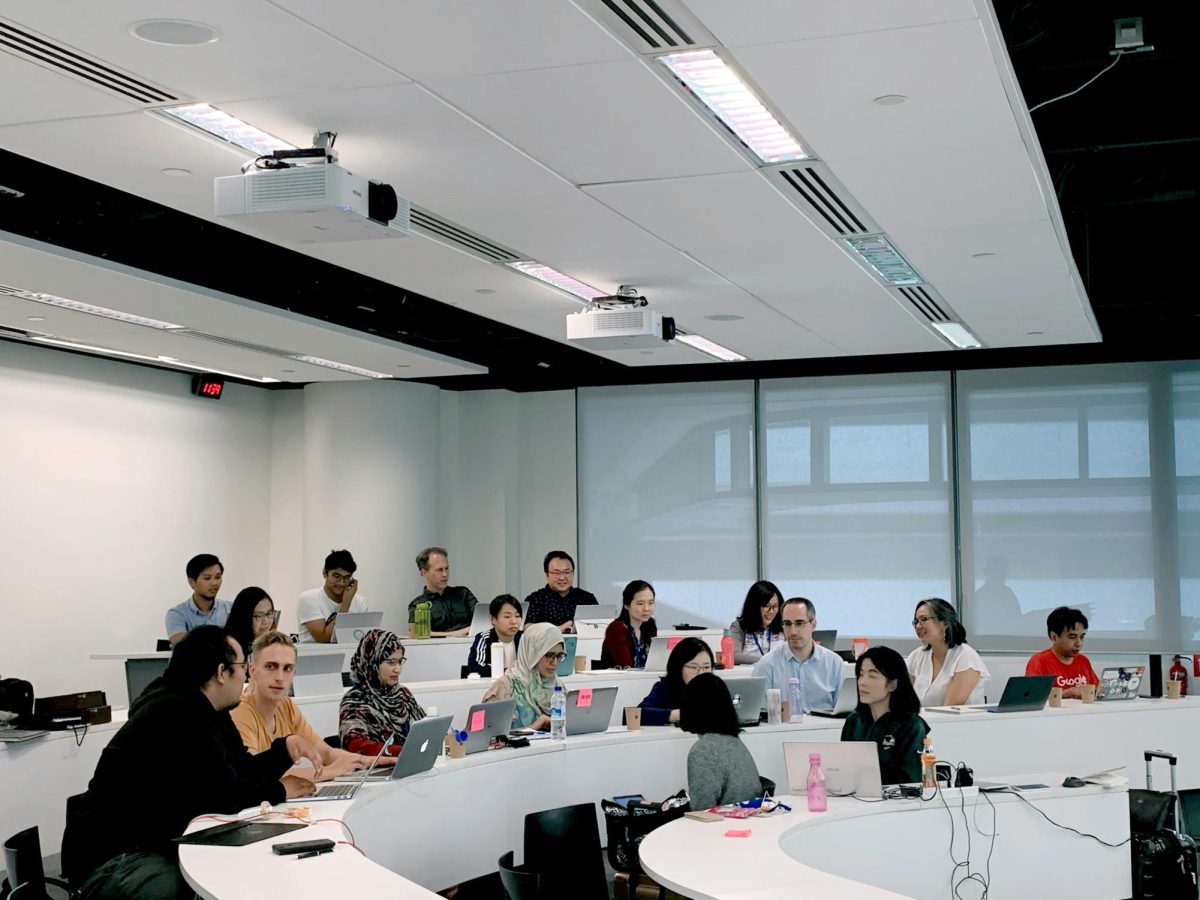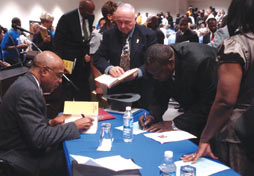By Mark Bauer/se news editor

Elegance is often associated with the opulent lifestyles of the rich and famous, guests at the Women in New Roles 30th anniversary celebration heard.
As keynote speaker for the Oct. 26 banquet, Dr. Tahita Fulkerson, associate vice chancellor for teaching and learning services, played up the evening’s theme Elegance in Learning, Play it Forward … elegantly.
While the opulent description depends on fleeting fads and styles, Fulkerson said that is not the elegance the more than 200 in attendance were there to observe.
“ Rather, let’s focus on another definition: the attribute of being unusually effective and simple,” she said.
“ Used this way, elegance describes things more permanent, and certainly more important than clothes and dishes.”
Fulkerson said simplistic elegance can be found in fields such as mathematics or computer science.
Quoting David Price, associate professor of math on SE Campus, she said, “When the ideas [of a mathematical proof] fit together in a highly cohesive manner, that is elegance.”
Fulkerson told of John Kidd, department chair of computer science on NW Campus, who said if computer code gives him goose bumps “because of its simplicity and novelty,” that, too, is elegance.
What about elegant learning?
“ It is so consistent, meaningful and beautifully simple that it gives us goose bumps,” she said.
With three decades of service behind them, and an 89 percent completion rate, WINR’s success speaks for itself.
“ WINR is elegant,” she said. “It is unusually effective and simple.”
The WINR curriculum achieves elegance by laying out simple truths and pathways that lead to improvement, Fulkerson said. The classes ultimately help students answer such questions as “where am I going and how will I get there?”
The WINR program began in 1978 with founder Emily Lunday Garrett to help women with their transition back into school. Although Garrett was not in attendance, she gave her greetings via a previously recorded video presentation.
The program, which prides itself on the dynamic learning community, helps affirm the learning style of the individual student while including the perceptions of others in that learning style. The end result, Fulkerson said, is change.
Some of the attributes former students have said they walked away with from the program include wisdom, knowledge, insight and lifetime gifts, Fulkerson said.
One student, Barbara, in a recent e-mail to Triesha Light, associate professor of psychology, said she was raised by an alcoholic mother and was herself a mother by the age of 16.
But with the assistance of the WINR program, she developed skills that enabled her to succeed academically. And she has since begun doctoral studies in U.S. history with a minor in women’s studies.
One of the highlights of the evening was the presentation of the Eagle Award, to Glenda Nichols, South Campus behavioral sciences department chair. The award is given to the person who most helped advance the WINR mission statement in the last three years.
The reception also featured a silent auction that raised $1,800 to go toward the WINR scholarship fund, awarded to help support members of the program.
Many of the items in the auction were donated by local businesses and faculty or came from private donations.





























